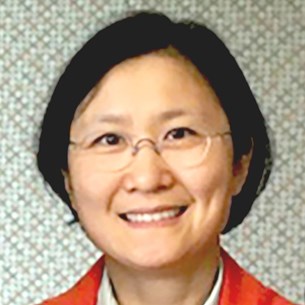Meeting
2019 ASCO Annual Meeting

National Cancer Institute, Bethesda, MD
Hoyoung M. Maeng , Lauren Virginia Wood , Brittni Moore , Mohammadhadi H. Bagheri , Santhana Webb , Lee England , Giselle Martinez , Seth M. Steinberg , Svetlana Pack , David Stroncek , John Charles Morris , Masaki Terabe , Jay A. Berzofsky
Background: We developed a HER2 targeting autologous dendritic cell (DC) vaccine transduced with an adenovirus expressing the extracellular and transmembrane domains of HER2 (AdHER2). In mice, the homologous vaccine cured virtually all mice with established or metastatic tumors. Protection was dependent on antibodies against HER2 that inhibited phosphorylation, but was ADCC independent. We translated these findings into a clinical trial. Methods: This is an open-label, phase I study in patients with 1) metastatic cancer that progressed after ≥ 1 standard therapies, or 2) history of high risk bladder cancer with definitive treatment, whose tumor is HER2 immunohistochemistry (IHC) score ≥ 1+ or FISH HER2/CEP17 ratio ≥ 1.8. Part 1 of the study enrolled patients naïve to HER2-directed therapies and Part 2 enrolled patients who progressed with ≥ 1 anti-HER2 therapy. Results: In Part 1, the lowest dose level (5E+6 viable DCs, N=7, 2 inevaluable) showed no benefit. At the second and third dose level (10E+6 and 20E+6; N=7 and N=4; 0 and 1 inevaluable in each), 1 CR (ovarian), 1 PR (stomach), and 3 SD (1 ovarian carcinosarcoma and 2 colon) were observed. Two bladder cancer patients who received vaccine as an adjuvant did not recur for +24 and +36 month each. In Part 2 (N=6, 2 inevaluable), 1 male breast cancer patient showed SD. Response assessed by Modified Immune Related Response Criteria is summarized in the Table. Injection-site reactions occurred in all patients and were self-limited. Echo, EKG and troponin follow up to 2 years showed no cardiac toxicity. Dose-expansion cohort (40E+6) is enrolling. Conclusions: We have translated a cancer vaccine from mice to a clinical trial. Preliminary results of a phase I trial of an autologous AdHER2 DC vaccine show potential clinical benefit in select patients with HER2 expressing tumors with no cardiac toxicity. Clinical trial information: NCT01730118
| Part I | Part II | |||||||
|---|---|---|---|---|---|---|---|---|
| 10E+6 | 20E+6 | 20E+6 | ||||||
| Primary/HER2 IHC | Response | Duration (wk) | Primary/HER2 IHC | Response | Duration (wk) | Primary/HER2 IHC | Response | Duration (wk) |
| Colon/3 | PD | - | Colon/1 | PD | - | Breast/2 | SD | 24 |
| Stomach/3 | PR(-50%)* | 16 | Ovary/3 | CR* | 89** | Breast/3 | PD | - |
| Colon/2 | SD | 16 | Ovary/1 | SD(-20%) | 48 | Breast/3 | PD | - |
| Colon/1 | SD | 16 | Breast/3 | PD | - | |||
| Ovary/2 | PD | - | ||||||
| Colon/3 | PD | - | ||||||
| Ovary/2 | PD | - | ||||||
* Peptide array showed antibody response > x3 against HER2 peptides in select responders. ** Recurred with HER2 IHC 0 in a metastatic lesion suggesting immune escape.
Disclaimer
This material on this page is ©2024 American Society of Clinical Oncology, all rights reserved. Licensing available upon request. For more information, please contact licensing@asco.org
2019 ASCO Annual Meeting
Poster Session
Developmental Immunotherapy and Tumor Immunobiology
Developmental Therapeutics—Immunotherapy
Vaccines
NCT01730118
J Clin Oncol 37, 2019 (suppl; abstr 2639)
10.1200/JCO.2019.37.15_suppl.2639
2639
283
Abstract Disclosures
2024 ASCO Annual Meeting
First Author: Shanshan Jin
2023 ASCO Annual Meeting
First Author: John Heymach
2024 ASCO Genitourinary Cancers Symposium
First Author: David H Aggen
2023 ASCO Annual Meeting
First Author: Tarek Mohamed Ahmed Abdel-Fatah